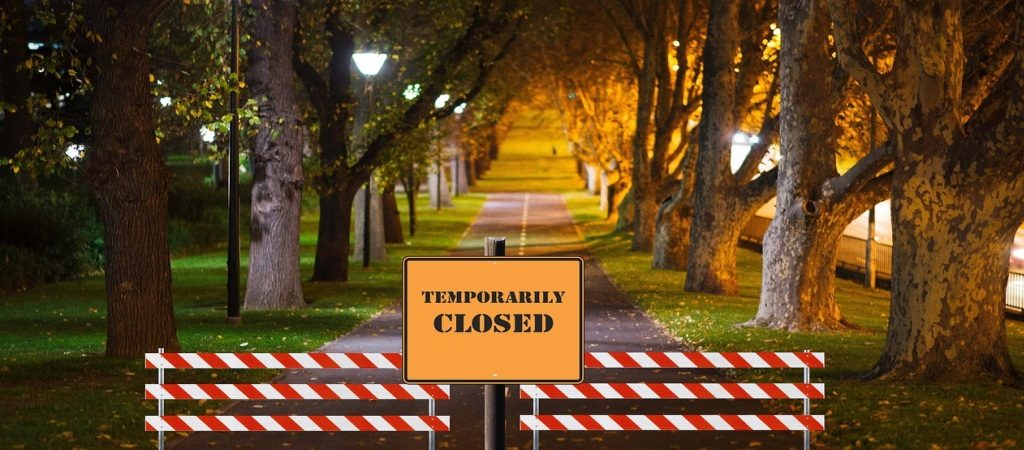The EB-5 Immigrant Investor Program offers foreign investors a direct...
Read MoreThe 2025 U.S. Government Shutdown
Uncertainty in the Immigration System
Yasin Bilgehan Akalan
Attorney at Law
Immigration Law Expert – Akalan Law Firm

A government shutdown in the United States occurs when Congress fails to approve a budget, forcing many federal agencies to halt or reduce operations. The government shutdown 2025 has had far-reaching consequences, particularly for the immigration system. While some agencies close entirely, others continue on a limited basis, creating uncertainty for millions. USCIS (U.S. Citizenship and Immigration Services) remains mostly operational because it is primarily fee-funded, yet delays are still common due to interagency slowdowns. On the other hand, immigration courts, which depend on congressional appropriations, remain open and are currently proceeding with both detained and non-detained dockets as usual. For immigrants, families, and legal representatives, this means longer wait times, rescheduled hearings, and greater anxiety about the future.
A government shutdown happens when Congress does not pass a budget. Without funding, many federal agencies cannot operate normally. A federal government shutdown forces agencies to cut services. Some close completely, others run only essential programs. The US government shutdown creates widespread disruption. Workers are furloughed, offices close, and services for citizens stop.
In the 2025 government shutdown, millions of employees may face unpaid leave. Families wait for paychecks, creating financial stress.Some call it the Trump government shutdown 2025, linking the crisis to political battles. Shutdowns, however, have happened under many leaders.If you ask who is affected by government shutdown, the list is long. Federal workers, contractors, students, and immigrants feel the impact.
A government shutdown today means delays in visas, passports, and benefits. Agencies like DHS, USCIS, and DOL reduce activity.Across history, government shutdowns in the United States stop routine functions. They weaken trust in agencies and slow economic activity.
Simply put, a shutdown government cannot deliver promised services. Citizens wait, businesses lose time, and the system stalls.
During a government shutdown, many agencies close. But USCIS (U.S. Citizenship and Immigration Services) is different. It is primarily fee-funded. This means most services continue even in a federal government shutdown. Applicants still file forms, attend interviews, and track cases. In the government shutdown 2025, immigrants can expect USCIS offices to remain open. Processing continues because user fees fund operations.
Every USCIS case depends on applicant fees. These fees support staff, systems, and daily operations. This makes USCIS less vulnerable.
Still, delays can happen. A 2025 government shutdown may slow background checks or partner agency reviews. These steps affect USCIS processing time. For those in the immigration process, patience is critical. An immigrant waiting for a green card may see longer timelines.
In short, USCIS keeps working during shutdowns. But cases may move slower, and applicants should plan for possible delays.
Even in a government shutdown, many USCIS services remain active. This is because USCIS is mainly fee-funded.
Visa processing continues. Immigrants can still submit petitions, schedule biometrics, and check case updates.
Work permit applications also move forward. Applicants file renewals or new requests despite the government shutdown 2025.
Green card processing does not stop. USCIS case officers review documents, conduct interviews, and move cases through the system.
Naturalization services continue as well. Immigrants still attend interviews and oath ceremonies, even during the 2025 government shutdown.
Still, each USCIS case may face longer review times. External checks cause slowdowns, affecting uscis processing time.
For anyone in the immigration process, services continue but with caution. Every immigrant should plan for possible delays.
Even though USCIS continues during a government shutdown, delays can occur. Staffing shortages and indirect effects slow progress. In the government shutdown 2025, other federal partners may reduce activity. Security checks and background reviews can stall. This impacts every USCIS case. Delays in interagency coordination affect interviews, approvals, and document production.
Applicants may see longer USCIS processing time. Wait times for green cards, visas, and work permits increase.
An immigrant waiting for naturalization may experience rescheduled appointments. Each step in the immigration process faces risk.
The 2025 government shutdown shows how indirect impacts ripple across agencies. Even fee-funded services cannot avoid slowdowns.

Immigration courts operate under the DOJ and rely on congressional funding. However, during the 2025 government shutdown, EOIR announced that both detained and non-detained dockets are proceeding as usual. This marks a departure from prior shutdowns, when generally only detained docket cases continued while non-detained matters were reset for later dates once funding resumed.
Courts will issue updated notices of hearing if any scheduling adjustments occur.
For non-detained cases, hearings are postponed. Many face rescheduling, creating confusion about the next immigration court date. Detained dockets continue. This means cases involving detention move forward, but resources remain stretched.
Applicants should continue to appear for their scheduled hearings unless otherwise notified. As of now, EOIR has not paused or cancelled non-detained hearings. Courts continue to issue updated notices only if specific scheduling changes are needed. Each delay increases wait times for asylum seekers and other applicants. Issues of illegal immigration remain unsolved during closures. Court backlogs grow while enforcement continues at the border.
In short, U.S. immigration courts remain open during the 2025 shutdown, with both detained and non-detained dockets proceeding. This differs from prior shutdowns and has helped prevent significant disruption or backlog increases..
Citizenship by birth is more than a legal term—it’s a life-defining right for children born on U.S. soil. But recent developments have left many parents deeply worried. “Read the article”
During a 2025 government shutdown, many agencies stop. But ICE officers are considered essential. They continue enforcement activities. ICE operations focus on detaining and removing individuals. Cases linked to illegal immigration remain a priority.
CBP also continues border inspections. Even in a shoutdown, border security does not pause. Essential staff keep working.
For those in the immigration process, enforcement creates stress. An immigrant facing detention still moves through the system.Detention facilities stay active. Deportation flights continue, even when other government services slow.
In short, ICE and CBP do not close. The 2025 government shutdown limits many agencies, but border enforcement remains strong.
A shutdown government ends only when Congress approves funding. Lawmakers must pass a budget or continuing resolution. During a 2025 government shutdown, negotiations can last days or weeks. The timeline depends on political compromise.
History shows no fixed length for a shoutdown. Some close quickly, others drag on and create lasting effects.
Markets, agencies, and families wait for solutions. The end comes when leaders agree on spending bills and priorities.
Until then, the system stalls. Services remain limited, and citizens face uncertainty during every shutdown government crisis.
During a government shutdown, many services slow. Knowing what to do helps reduce stress and confusion.
For those with cases in immigration courts, hearings may be postponed. Always check immigration court date updates online. If your us immigration court hearing is cancelled, expect delays. A new immigration court date may take months.
Applicants must prepare for longer visa processing times. Every process time visa can extend during budget deadlocks. Expect increased us visa processing wait times 2025. A travel visa processing time may be weeks longer than usual.
Track official updates from the Department of State for visa processing. They post changes in processing times for visa categories.Understand the effects of government shutdown before making travel plans. Ask, what are the effects of a government shutdown on your case?
In short, the effects of a government shutdown include slower services, postponed hearings, and longer visa queues. Planning ahead is essential.
In conclusion, the government shutdown 2025 is not only a political standoff but also a pressing issue for the U.S. immigration system. USCIS continues its essential services, but processing delays are inevitable when partner agencies slow down. Immigration courts are hit even harder, with hearings postponed and backlogs worsening, leaving asylum seekers and other applicants in prolonged uncertainty. For immigrants navigating the system, planning ahead, monitoring official updates, and preparing for extended wait times are crucial steps. Ultimately, every shutdown highlights how fragile essential services can become when political deadlock disrupts government operations.
With the return of former President Donald J. Trump to the White House, the federal government has launched an aggressive mass deportation initiative. “Read the article”
The EB-5 Immigrant Investor Program offers foreign investors a direct...
Read MoreThe H-1B Visa Project Firewall introduces the most aggressive enforcement...
Read MoreThis case study explains how multinational companies can strategically use...
Read MoreDidn’t win the H-1B lottery? Explore proven H-1B visa alternatives—such...
Read MoreCitizenship by birth is more than a legal term—it’s a life-defining right for children born on U.S. soil. But recent developments have left many parents deeply worried. “Read the article”
Akalan Law Firm, PLLC
All Rights Reserved © 2024